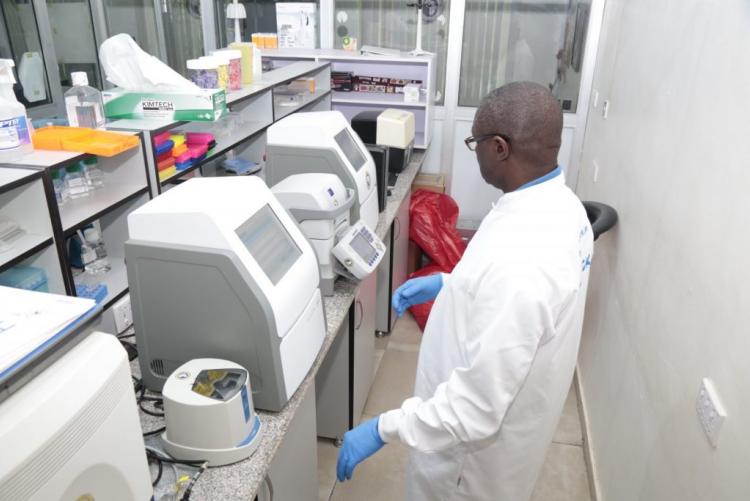EDE, NIGERIA, 11 MAY 2020. Researchers at the African Center of Excellence for Genomics of Infectious Diseases (ACEGID), Redeemer’s University, Ede, Nigeria, have begun a partnership with the Africa Centres for Disease Control and Prevention (Africa CDC), the Broad Institute of MIT and Harvard, and other research and public health partners, to implement a Sentinel project for an early warning system in Africa.
Led by Christian Happi and Pardis Sabeti, both researchers who have been studying infectious diseases together for two decades, the project aims to combine genomics with new information technologies in the detection and response to emerging viral threats in real-time.
The project was conceived long before COVID-19, but its relevance has become more significant in the face of this fast-spreading pandemic.
“We have seen communities of researchers and healthcare workers come together in extraordinary ways to fight COVID-19. Sentinel is, and will continue to be, a powerful example of this,” says Christian Happi, Director at ACEGID and Professor of Molecular Biology and Genomics at the Redeemer’s University, Nigeria.
“This pandemic has shown us how unprepared we are everywhere in the world for a crisis of this magnitude. But while it’s clear that we are all very much behind the curve, this pandemic will hopefully prompt government leaders to take up new tools and technologies to combat COVID-19, and to prepare for future outbreaks,” said Pardis Sabeti, Member, Broad Institute; Professor of Organismic and Evolutionary Biology at Harvard University; and Professor, Department of Immunology and Infectious Disease at Harvard Chan School of Public Health.
The Sentinel Project is the first of eight new projects selected by the Audacious Project, and it has three pillars: (1) detect, (2) connect and (3) empower.
Under the first pillar, researchers will leverage ultra-sensitive genomic and clustered regularly interspaced short palindromic repeats (CRISPR) technologies to detect pathogens. One example is SHERLOCK, a platform that uses a simple paper strip to detect viruses and that may eventually be used even in the most remote areas with minimal or no equipment.
In the second pillar, the project will connectpublic health experts to data gleaned from these detection platforms, using mobile applications and cloud-based systems that enable healthcare workers and public health officials to share data, analyses, and insights in real-time.
And in the third pillar, the project will empower public health experts by training thousands of healthcare professionals to use the sentinel tools and deploy the diagnostic technologies for population-level testing, building on previous experiences of ACEGID and the Broad Institute in training over 900 individuals from around the world.
“The potential of Sentinel to transform infectious disease surveillance in Africa is boundless, and its mission complements that of Africa CDC: to strengthen surveillance and emergency response, and improve management of public health threats of regional and international consequence,” says John Nkengasong, Director of the Africa CDC.
“The opportunity to use advanced genomics and the analytical infrastructure to support the diagnostic potential for patients and populations provides an exciting opportunity for countries and the continent,” says Chikwe Ihekwuazu, Director-General, Nigeria Centre for Disease Control.
Other partners in this project are Fathom Information Design, MASS Design Group, and Dimagi. The project partners will leverage their existing partnerships and cutting-edge genomics capacity and experience in containing diseases such as monkeypox, yellow fever, Ebola, Zika, and Lassa fever to pilot the project in West and Central Africa, and eventually scale up to other African countries and regions.
“The whole idea of the project is to ensure that we can all be on guard to protect our communities. Each of us can be a sentinel by engaging with the healthcare system to uncover what is making us sick, and in the process warn our communities,” says Sabeti.
- Log in to post comments

